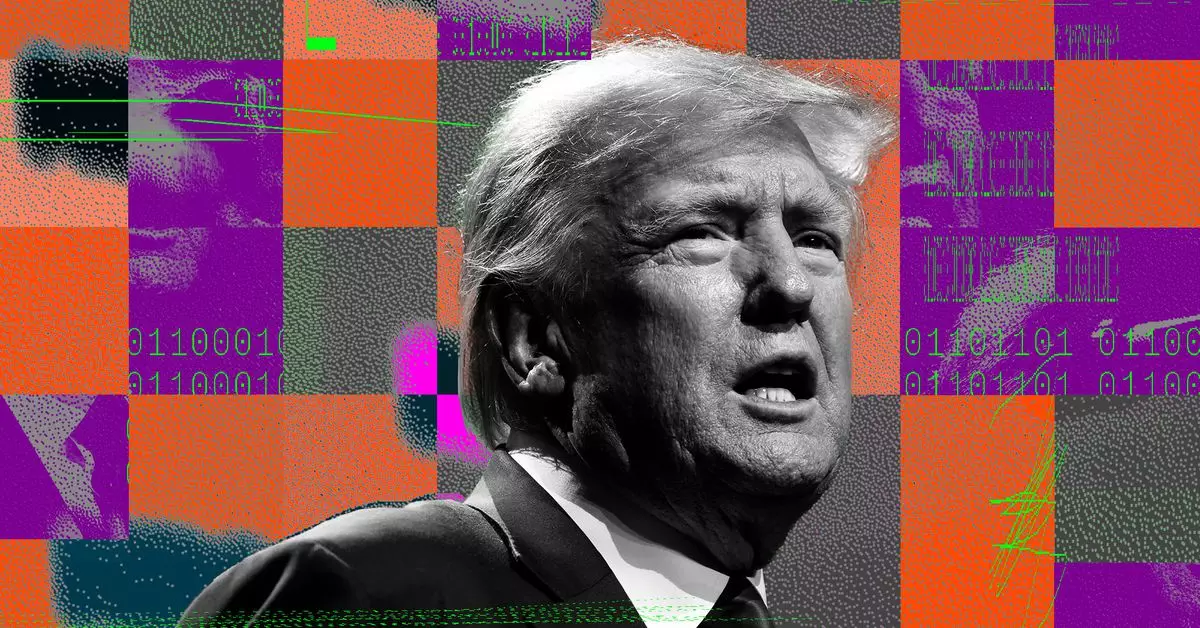The intersection of technology and politics has reached an exciting juncture as former President Donald Trump introduces an intriguing proposition regarding TikTok, a platform that has become both popular and controversial in the United States. As the Supreme Court prepares to evaluate the legal implications surrounding a proposed ban on TikTok, Trump is advocating for a resolution through political engagement. This situation raises crucial questions about the influence of social media, corporate ownership, and the delicate balance between national security and the First Amendment.
In an amicus brief submitted to the Supreme Court, Trump has expressed his desire to negotiate the future of TikTok once he assumes the presidency again. He asserts that he holds the unique qualifications needed to orchestrate a deal that would preserve the platform for Americans, citing his extensive experience in deal-making and a strong electoral mandate. The essence of Trump’s appeal lies in his belief that he alone can deftly resolve the complexities surrounding TikTok, particularly in establishing a framework that ensures it does not remain under the influence of its parent company, ByteDance—a Chinese firm. This raises a significant question: can politicians genuinely navigate the intricate web of technology and national interest to achieve a favorable outcome?
The Supreme Court’s decision to hear arguments surrounding the congressional ban of TikTok on national security grounds signifies a pivotal moment in legal discourse. Supporters of the ban argue that TikTok poses potential dangers due to its connections to China, while critics maintain that such a ban could infringe upon constitutional rights, specifically the First Amendment’s guarantees of free speech. Trump’s request for a stay on the enforcement of the impending deadline for the ban underscores the urgency and complexity of these legal matters. He emphasizes that a negotiated settlement could indeed render the Court’s deliberation unnecessary, thereby easing the tension that surrounds the issue.
However, the lack of specifics in Trump’s proposed deal is notable. It is widely speculated that a successful resolution would likely involve substantial concessions from ByteDance, potentially prompting them to divest significant portions of their ownership in TikTok. This highlights a broader concern regarding the power dynamics between foreign corporations and American interests, especially in the realm of technology.
Trump’s foray into TikTok’s fate also reveals the evolving nature of social media as a currency in political strategy. His prior initiatives to ban the app reflect a growing unease about Chinese influence in American digital spaces, while his recent willingness to maintain the platform signals its perceived value. TikTok has emerged as a powerful tool for political engagement, particularly among younger voters. Trump’s acknowledgment of its importance is further evidenced by his personal engagement with TikTok CEO Shou Chew, where he hinted at the possibility of redefining the platform’s role in American society.
This situation mirrors historical instances where social media platforms have been the focal points of political discourse. For instance, Trump’s own campaign effectively utilized TikTok to rally support, illustrating the platform’s essential role in modern political campaigns. The inherent dichotomy of using a platform for political gain while simultaneously promoting its ban raises questions about sincerity and practicality in governance.
Nevertheless, the road remains fraught with challenges. Despite Trump’s shift in rhetoric, significant political pressure persists for the enforcement of the TikTok ban. Legislative figures across party lines, including influential senators like Mitch McConnell, continue to back the ban, complicating Trump’s effort for resolution. This clash of perspectives reveals a bitter partisan divide concerning national security and individual rights in the digital age.
As the legal battles unfold and political players position themselves, the future of TikTok will likely reflect broader societal conflicts regarding technology’s role in everyday life. The ongoing narrative surrounding TikTok serves as a case study not only of a social media platform’s survival but also of how digital expression intersects with political maneuvering and national concerns.
While negotiation offers a potential pathway forward for TikTok, the interplay between technology, politics, and public sentiment will ultimately shape the outcome in a world where digital expression becomes increasingly significant.

